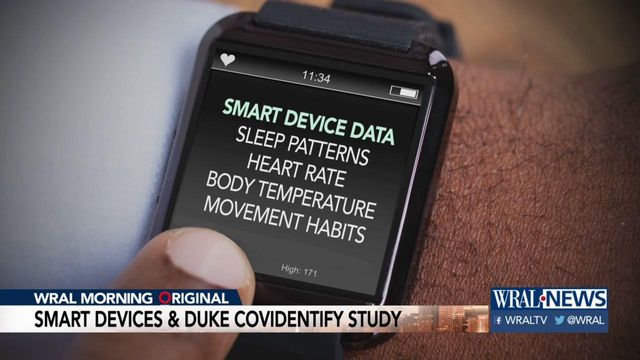Duke researchers using wearable smart devices to control virus spread
Duke researchers now hope to detect early signs of COVID-19 even before symptoms appear by using smart watches and other wearable fitness devices already used by one in five Americans.
Posted — Updated"What we’re working to do is to figure out if there’s a sort of common change in a combination of your sleep, your heart rate, your temperature and your movement habits that together indicate you may have COVID," Dunn said.
Dunn said the devices can record heart rate and even help scientists find useful information between heartbeats.
"We’re looking for these kind of changes in your personal habits and what’s normal for you as an individual," she said.
According to Dunn, different people have their own sleep patterns that may provide clues for when infection is present.
"If you’re a really heavy sleeper and you have an infection, sometimes you might have increased awakenings in the night," she said. "You might have increased tossing and turning."
Dunn began work in this field four to five years ago while at Stanford University. Many institutions around the world now gather data from smart watches and fitness-device users.
"We are still enrolling and still recruiting and trying to get as many people as possible enrolled," she said.
Dunn said their interest goes beyond just one disease.
"One of our key goals is to actually distinguish between flu infection and COVID-19 infection," she said.
The impact, said Dunn, is potentially huge.
"Imagine that you could let somebody know right before they know that they are sick, that they should stay home, they should quarantine, they should stay away from their loved ones, particularly those who are vulnerable, like the elderly or people who are immune-compromised," Dunn said.
"This is really a huge chance to prevent community spread, for us to get to people in a much faster way than our traditional testing schemes could."
In order to gain a larger and more diverse sample of the population, Dunn and the Duke research team plan to work through community based organizations to find more participants to wear the devices and share their data.
Related Topics
• Credits
Copyright 2024 by Capitol Broadcasting Company. All rights reserved. This material may not be published, broadcast, rewritten or redistributed.





